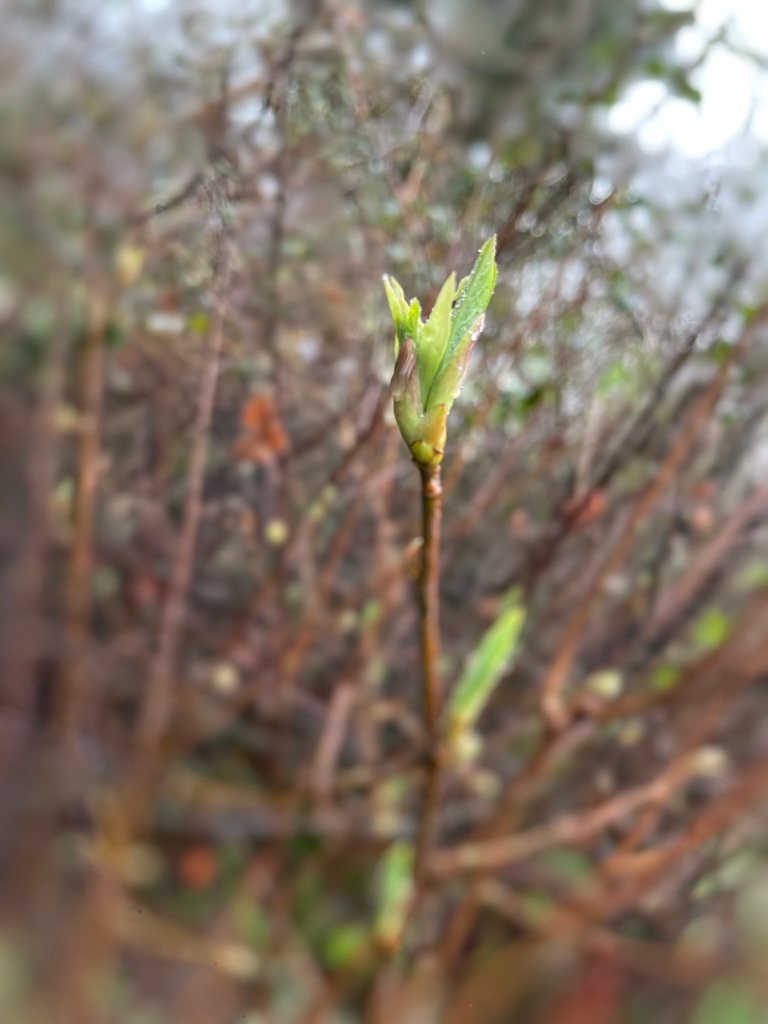First off, the cover is a gorgeous rendition of an Anna’s Hummingbird by Chris Lowther’s sister, Beth Wilks (each of the five sections commencing- and the collection ending – with another of her exquisite drawings, but in black & white.) And the ancient-forest-friendly cover stock and paper are silky and feel delicious in the hands. I so appreciate a reader-considerate size of text too with nil French sleeves, a book small enough for the pocket and massive enough, musically and conceptually, for many re-reads. Lowther is in a unique position to compose eco-poetry that enters realms many don’t as she lives part of the year on a “floatshack” in Wanačis-Hilthoois Tribal Park and thus has intimate access to many of the species she writes about. We are fortunate readers to glimpse this world. As Sue Sinclair writes in relation to poetry’s role in ecological thinking: “I can’t clearcut an acre of forest in which I recognize its whatness, its radiance. Poetic epiphany….may thus be helpful in redressing some of the ecological imbalances we’re currently living with.” And there are epiphanies galore in Hazard, Home, regarding the inhabitants of the oceans, the night, the air, the trees and within our human interactions with other species. The first part, Waters, begins, in “Floating on the Surface,” with a stirring listing of flotsam and jetsam, such as: “tiny white petals of shore yarrow” or “knotted skull of cedar burl,” beautiful noticings but never from within the innocence or blindness of the traditional nature poem, as we also have the melding of purity and decimation in: “whole white salal flowers, round as styrofoam beads.” The potency is not only in Lowther’s ability to acknowledge that all seeing is problematized by knowledge, but also, that one can still celebrate, as in her honouring depiction of bees that, “cling to anise hyssop towers,/splay communally on meshes of white alyssum,/dangle from blue borage” (It’s a Party), inviting them to stay in her cabin, then joyfully beckoning, “Let everyone come!” as she remembers that she is “their guest.”

The Sounds segment is only four poems but it introduces us to the unique diction Lowther has drawn from Robert McFarlane’s Landmarks book, such as the word for an unidentifiable noise in nature, or “hummadruz.” I only wish these definitions were in a glossary at the end rather than footnotes, a preference that lessens the visual messiness of the page. “The Listening Dark” is my favourite with its aggravating male imperative at the start for the poet to, “Quit writing nature poems” that evolves into the night serving as “counter-argument.” I also adore the “Pop-up Grebe” (who is “gaunt” and “titchy”) and the “‘Common’ Loon” in the Birds part with “surprise on [its] velvet face.” The (Trees) section for me is the weakest, poetically-speaking, likely because the ongoing fight for the forests, its political rhetoric, its more prosy approach, dominates. The subject matter, however, is essential. We need to hear about the tree protectors, the council meetings, the lies of conservation. I wondered at times about the form in a few of them, some so potently tight and others with line breaks jagging randomly, interrupting the flow of poem-absorption. But it’s a real challenge to write pieces that both say vital things and do the aural and visual work as poems and Lowther almost always succeeds. The closing segment, People, reminds us that we are relentlessly negotiating with other creatures for every resource and that they, after all, were there long before us. I loved the faux tourism brochure (Lowther includes quite a few Nuu-chah-nulth words in titles and within poems that my old keyboard unfortunately cannot reproduce!) where readers are informed about respectful ways to enter the wild and the indigenous: “Pick up the beads/and the cigarette butts…Allow yourself to be pierced/ by salmonberry thorns…Try to look through decolonized eyes.” Also the sad nationalistic truths behind the “Canadian Patch Job,” the pandemic realities of momentary animal freedom in “Opportunity” and the tragic helplessness of “We Let This Happen” with its crushing final line: “You must make way for us,/our lights that will erase the stars.” Christine Lowther’s Hazard, Home will stand with the most haunting and necessary books of poems on the plight of our planet: its specific graces, its general desecrations, its “beauty that blindsides them awake.”